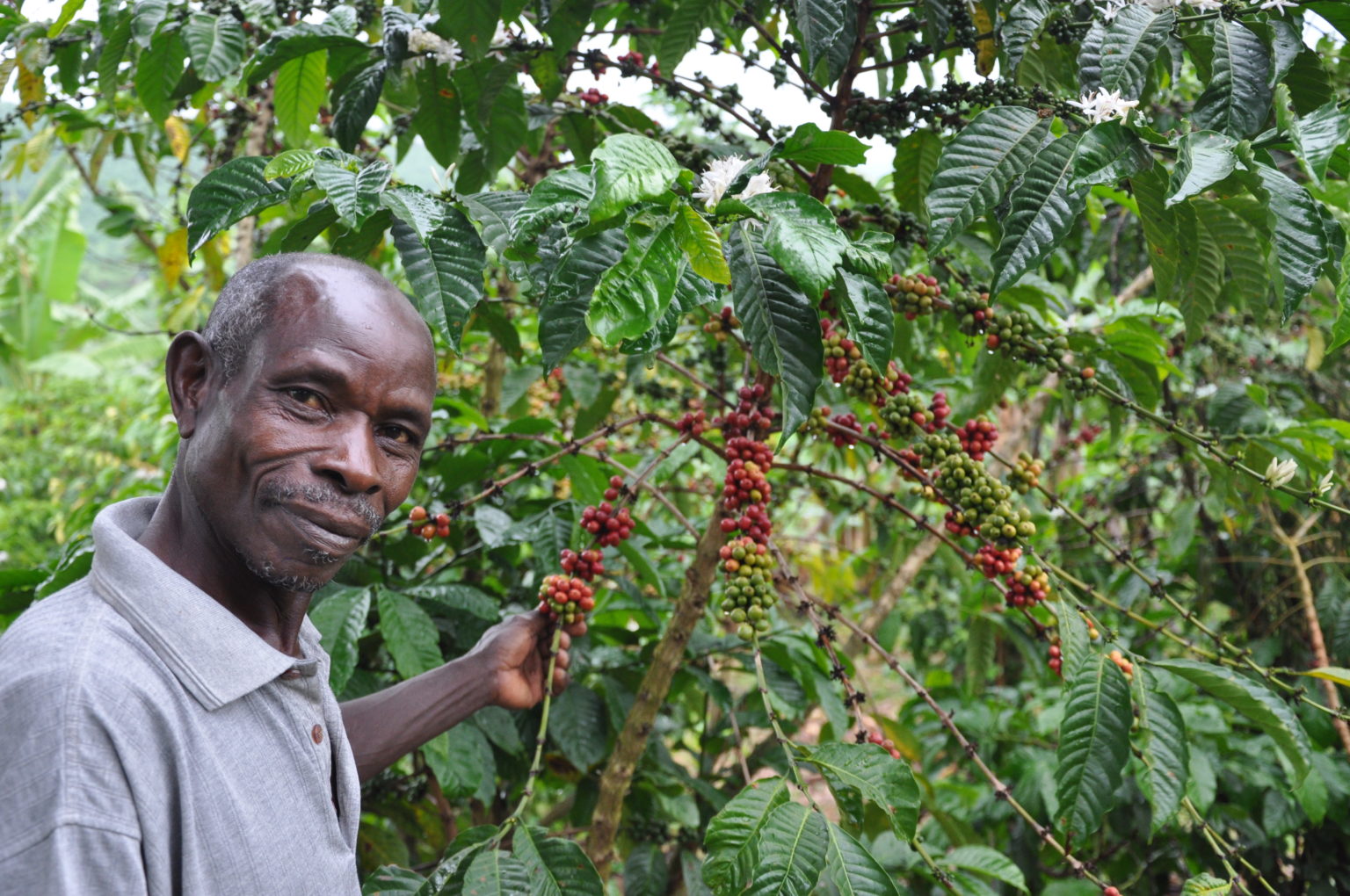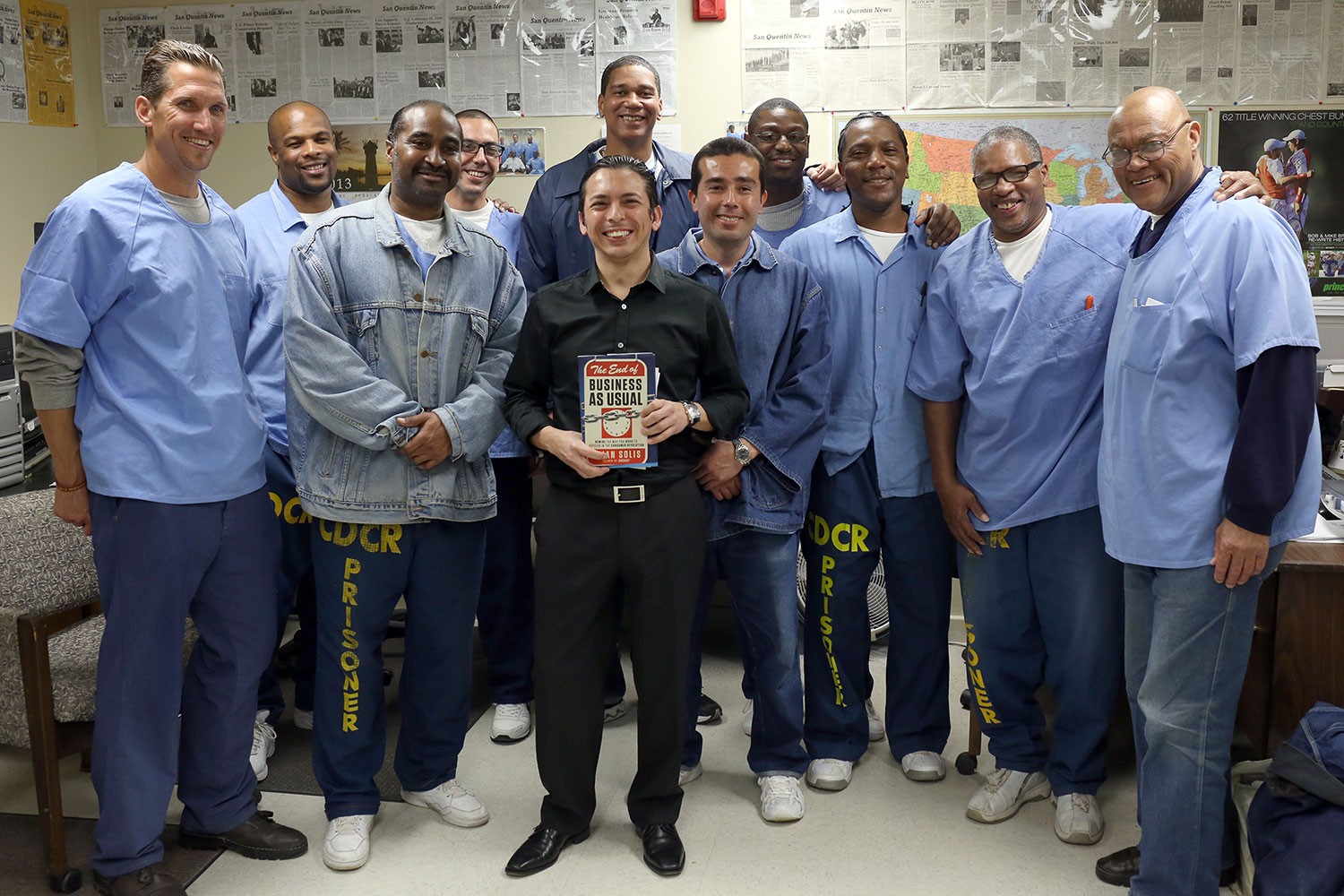While you sip your morning brew, consider this: By 2050, the area suitable for most coffee production is expected to decline by around 50%. The culprit? Climate change. The climate crisis.
Your daily dose of coffee depends on specific climate conditions, mostly found in mountainous regions of the tropics. But climate change is shifting conditions in coffee-growing regions, primarily through higher temperatures, unpredictable rainfall, and prolonged droughts. These climate hazards interfere with coffee cherry development, increase incidence of pest and disease outbreaks, and reduce overall coffee yields and quality.
While this may be difficult for the coffee addict to swallow, it’s utterly devastating for the 12 million farmers who depend on coffee production for their livelihoods. And similar climate risks threaten smallholder farmers in other value chains, from cocoa to macadamia nuts.
The good news is that small and growing agricultural enterprises are global leaders championing climate action in their communities. An analysis of Root Capital’s lending portfolio shows that over 80% of our active lending clients have at least one mitigation and/or adaptation activity in place to combat climate change and assist its producers in adapting to its impact. But what does that actually look like in practice?
What does climate change mitigation look like in rural communities?
Mitigation refers to activities that reduce, prevent, or remove greenhouse gas emissions, thereby reducing climate change. Practices that contribute to mitigation include:
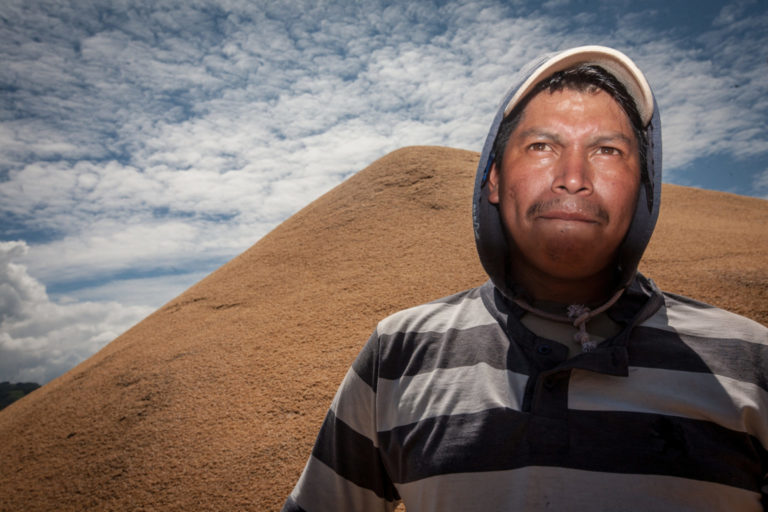
Circular agriculture — This practice focuses on reusing crop byproducts and residues to create a closed loop system and ensure nothing goes to waste. For example COCAFELOL, a coffee cooperative in Honduras, uses residue from coffee processing (like the parchment husks pictured above) to power their biodigester waste management system. Members of the cooperative can also buy low-cost natural bioethanol, biogas, and biofertilizers made from the cooperative’s coffee waste, thereby decreasing CO2 emissions and providing a cost-effective energy source for farmers.
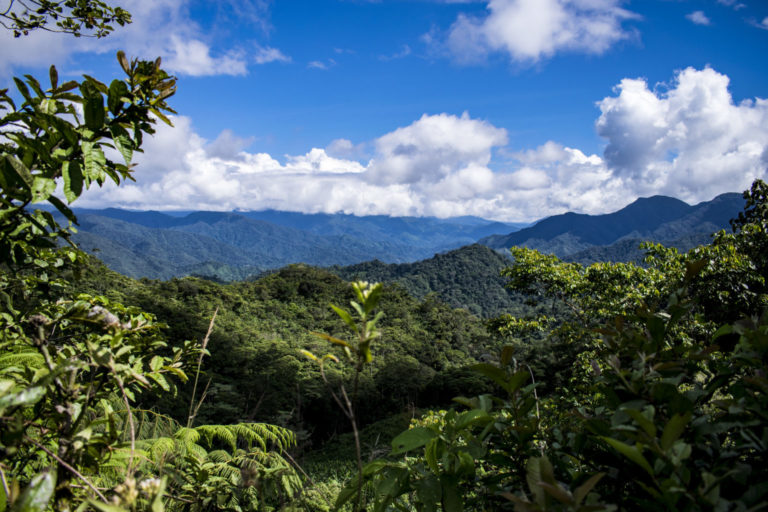
Reforestation — Replanting trees and regenerating forests are key steps in mitigating climate change and reducing greenhouse gas emissions. In addition to mitigating global climate change, reforestation improves local ecosystems and fills important needs. One example from our portfolio is the benefits of reforestation for rural beekeepers and farmers. COPIASURO, a honey cooperative in Guatemala, has launched reforestation projects all over their community. These forests provide a natural habitat for their bees, increasing the health and productivity of their hives. Bees also pollinate coffee trees and other plants, creating a thriving local ecosystem in balance with rural livelihoods.
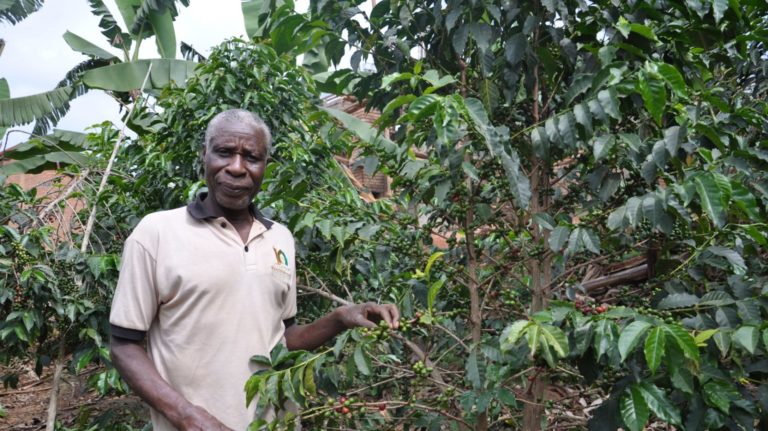
Diversified agroforestry — Agroforestry refers to land-use that incorporates the cultivation and conservation of trees—the greater the number and diversity of trees, the higher the environmental and climate benefits. When coffee farmers apply this practice, it’s often referred to as “shade-grown coffee.” By mimicking forests, multi-strata agroforestry systems such as those found in our coffee portfolio, can prevent erosion and flooding, recharge groundwater, restore degraded lands and soils, support biodiversity, and absorb and store carbon.
What does climate change adaptation look like in farming communities?
Adaptation is about helping farmers anticipate, respond to, and ultimately minimize the negative impacts of climate change. Some of the most common examples include:
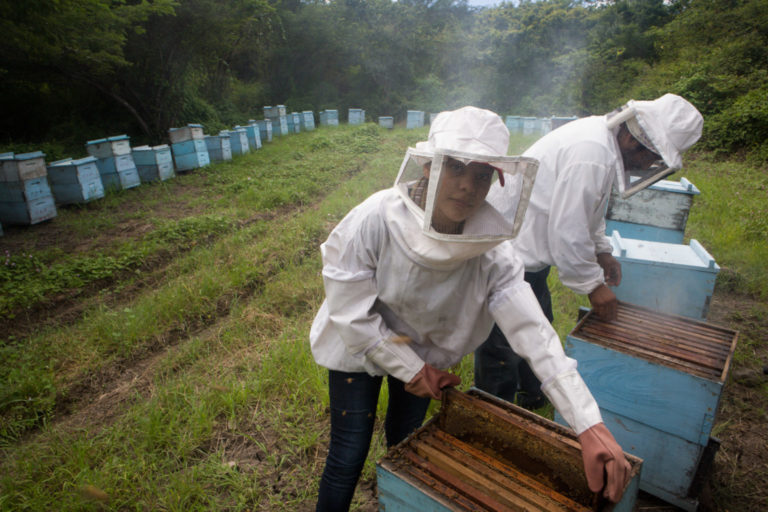
Income and crop diversification — As climate change threatens coffee yields, farmers may need to plant additional, climate-ready crops—or even transition out of coffee altogether. Cooperative Flor de Dalia, one of our clients in Nicaragua, has been helping coffee farmers diversify their incomes by raising bees, like the farmers above, or planting cocoa, rice, and beans. Diversifying into cocoa—which can tolerate higher temperatures than coffee—increases farmers resilience and allows them to access new markets. In addition to diversifying farmer’s food and cash revenues, when different crops are planted in the same field they share resources and nutrients, improving nutrition of both the soil and the plant.
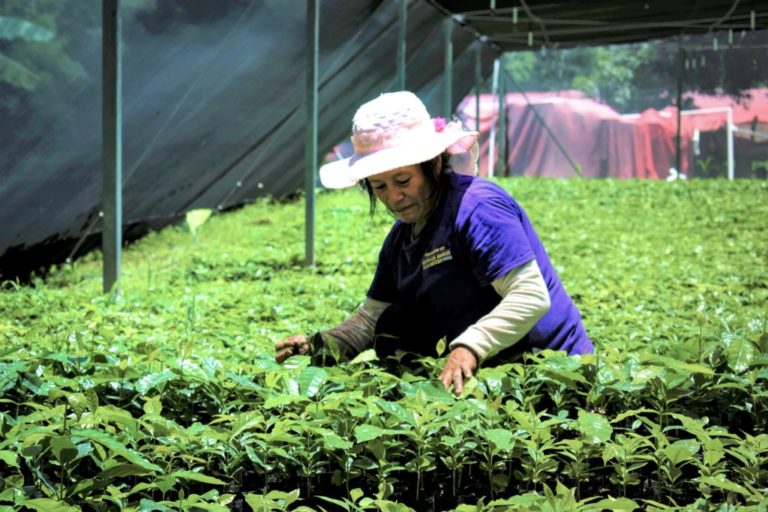
Pest and disease management — In the early 2010s, coffee communities across Latin America were decimated by la roya, a plant disease that suffocates coffee trees and can exterminate an entire farm in a matter of days. Crop diseases thrive on shifting rainfall patterns and temperature swings—two impacts of climate change that are only expected to increase in the future. Our client in Mexico, Triunfo Verde, invested in a plant nursery (pictured above) to provide farmers with seedlings of a specific variety of coffee that is well-adapted to the local environment and resistant to crop diseases.
Related Articles: The Future of Agriculture | Agriculture, Food Security and Climate Change with a Gender Lens
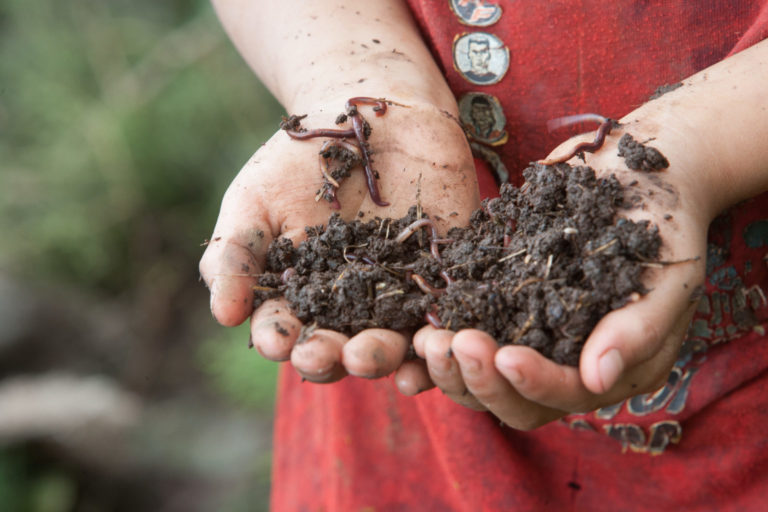
Soil fertility and conservation — Climate change raises temperatures and decreases crop productivity, making nutrient-rich soil an increasingly important tool for farmers. But simple, earth-friendly resources like mulch and compost can help improve soil health, increase water retention, and boost crop yields in the face of increasing temperatures and drought conditions. In Ghana, Serendipalm conducts field visits to teach farmers how to apply organic fertilizer provided by the cooperative to maximize their harvest and their income without the addition of harmful agrochemicals. This ensures Serendipalm’s farmers can maintain their 100% organic certification—which earns them 10% higher prices for their crops.
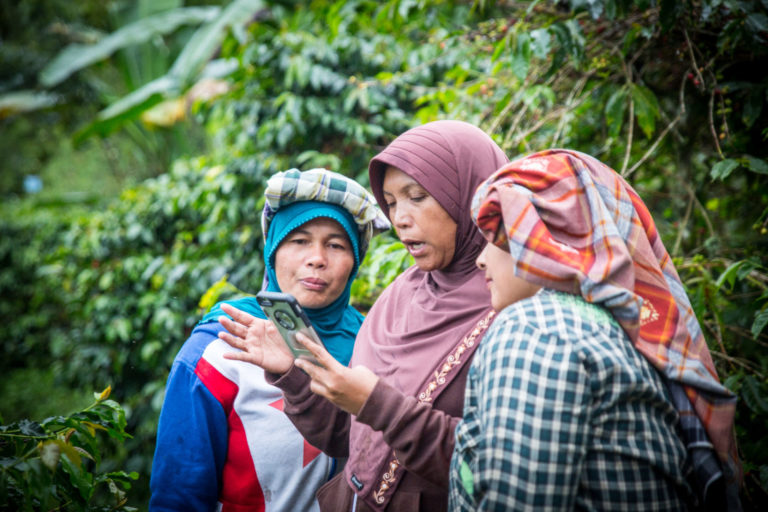
Weather alerts — Extreme weather events are becoming more frequent and pose a danger to farmers who need to assess when it is best to plant, harvest, or process their crops. The distribution of weather information such as weather forecasts, weather observations, or early warning systems through radio, text messages, or phone calls, for which they need a small business phone system to receive them, give farmers hours or days to take steps like early harvesting, covering coffee they’ve put out to dry, or holding off on planting new seedlings. This helps farmers protect their crops and avoid income loss in the face of severe weather.
How Root Capital supports rural communities mitigate and adapt to the climate crisis
The agricultural businesses Root Capital works with are rooted within their local communities, attuned to local needs, and invested in long-term solutions. Their leadership is more important than ever as we respond to the unprecedented climate crisis. But these businesses can’t do this alone.
In 2020, Root Capital launched our Climate Resilience Roadmap, a comprehensive strategy to support urgent climate action in rural communities. We are committed to growing our lending to climate action leaders that are on the frontlines of climate change and are helping communities mitigate and adapt. We’ll expand our climate resilience advisory services to help clients design adaptation plans tailored to their unique local climate risks and adaptive capacity. We’ll also pilot new forms of climate finance through loans and grants that will enable smallholder enterprises to overcome financial barriers to climate action. And, we’ll work across sectors to share learnings so we can maximize our impact in rural communities.
While rural communities are already demonstrating incredible leadership to combat our global climate crisis, with additional capacity and financing we can deepen our impact together. Learn more at rootcapital.org/climate.
EDITOR’S NOTE: The opinions expressed here by Impakter.com columnists are their own, not those of Impakter.com. In the Featured Photo: A farmer standing amongst his crops. Featured Photo Credit: Root Capital.


